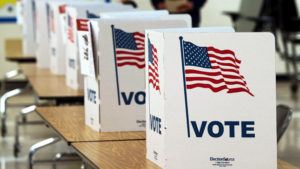If you lately feel that your rights, sovereignty and participation in your own governance is under siege, then your instincts are probably correct. It seems like a day does not go by that some elected official or appointed bureaucrat doesn’t spring a catapult of proposed legislation, agency rules or collateral attack on the metaphorical walls surrounding the fundamental values of the nation.
Most of the time it’s from the forces of the national government who are in session year-round — if you don’t count vacations, junkets and fact-finding missions to warm places during cold months.
In Colorado state government, the legislative process is limited in the time it can do mischief to just 120 days so there’s little time to spare. I suppose that’s why a bill filed to give the Constitution and the concept of a representative republic a good thumping needed to be done immediately.
Some version of legislation like this has been introduced three times since 2006 but has failed to pass the Legislature and governor’s desk.
However, this year’s state government apparatus is now controlled by a more obviously radicalized flavor of representatives so the odds of it passing seem much better. It’s especially true because this effort to essentially do away with the Electoral College as a method of electing a president is right in line with the goals set forth by the new Democratic Party majority in Congress.
In fact, immediately after taking over as the controlling party in the House of Representatives, Democrats introduced House Resolution 1 which indicates their No. 1 priority doesn’t seem to be health care, immigration or much of anything else that they talk about but instead is various methods to ensure that reliably Democrat-controlled voting strongholds carry national elections. Incapacitating the Electoral College is only one of the ideas in the resolution.
![]() Each state is awarded one electoral vote for each congressional district and senator with the thought that a candidate running for national office would not merely have to campaign in a few heavily populated areas and appeal to the voters in those jurisdictions at the expense of everyone else.
Each state is awarded one electoral vote for each congressional district and senator with the thought that a candidate running for national office would not merely have to campaign in a few heavily populated areas and appeal to the voters in those jurisdictions at the expense of everyone else.
Instead, a candidate in a winner take all system of electoral votes, based on winning the populations vote in each state, could cobble together a winning platform with just some of the more urban states populations and a number of the more rural or less densely populated states whose priorities are often not the same as those of metropolitan dominated regions.
It also protected the smaller states from subjugation to faraway cities, where a candidate could appeal to the whims of small geographical but high population areas in a way that could disadvantage or even harm larger but less populated parts of the country.
Candidates would no longer be particularly interested in what happened in states like Colorado, Wyoming, Montana, New Mexico, Utah and so forth when they could simply visit a few large coastal cities, promise them resources and benefits that might disadvantage other parts of the country and carry an election by purely popular vote.
Such a move is often justified by implying it ensures each vote is worth the same but obviously that’s not correct — what it really means is certain places are much more important than others.
If sponsors of such legislation truly believe that all votes should have exactly equal value in regard to representation, then we would not have the state of Delaware and the state of California with the same number of senators, as a vote for a candidate for United States Senate in one state carries much more weight than one in the other.
Anyone who claims to represent the interest of Colorado voters in a change to such a system as this legislation anticipates, is either deluded or devious.
Rick Wagner is a Grand Junction attorney. His weekly political talk show airs on KNZZ 1100 AM/92.7 FM on Saturdays at noon. Email him at rickwagner@columnist.com.


